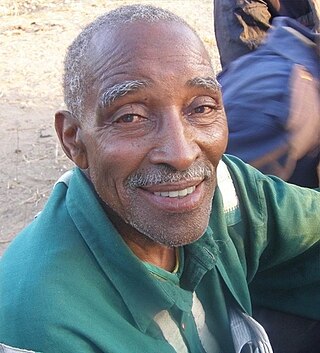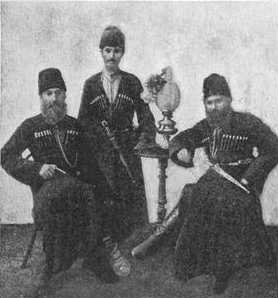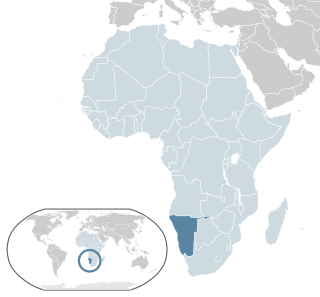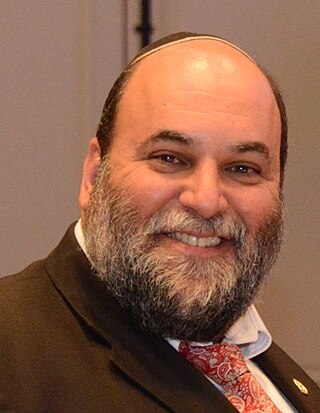Related Research Articles

Gaborone is the capital and largest city of Botswana with a population of 246,325 based on the 2022 census, about 10% of the total population of Botswana. Its agglomeration is home to 421,907 inhabitants at the 2011 census.

The Lemba, Remba, or Mwenye are an ethnic group which is native to South Africa, Malawi, Mozambique and Zimbabwe of mixed Bantu and Yemeni heritage. Within South Africa, they are particularly concentrated in the Limpopo province and the Mpumalanga province.

The World Jewish Congress (WJC) was founded in Geneva, Switzerland in August 1936 as an international federation of Jewish communities and organizations. According to its mission statement, the World Jewish Congress' main purpose is to act as "the diplomatic arm of the Jewish people". Membership in the WJC is open to all representative Jewish groups or communities, irrespective of the social, political or economic ideology of the community's host country. The World Jewish Congress headquarters are in New York City, and the organization maintains international offices in Brussels, Belgium; Jerusalem; Paris, France; Moscow, Russia; Buenos Aires, Argentina; and Geneva, Switzerland. The WJC has special consultative status with the United Nations Economic and Social Council.

African Jewish communities include:

Canadian Jews, whether by culture, ethnicity, or religion, form the fourth largest Jewish community in the world, exceeded only by those in Israel, the United States and France. As of 2021, Statistics Canada listed 335,295 Jews in Canada. This total would account for approximately 1.4% of the Canadian population.
The history of the Jews in India dates back to antiquity. Judaism was one of the first foreign religions to arrive in the Indian subcontinent in recorded history. Desi Jews are a small religious minority who have lived in the region since ancient times. They were able to survive for centuries despite persecution by Portuguese colonizers and nonnative antisemitic inquisitions.
South African Jews, whether by culture, ethnicity, or religion, form the twelfth largest Jewish community in the world, and the largest on the African continent. As of 2020, the Kaplan Centre at the University of Cape Town estimates 52,300 Jews in the country. The South African Jewish Board of Deputies estimates that the figure is closer to 75,000.

The history of the Jews in Azerbaijan dates back many centuries. Today, Jews in Azerbaijan mainly consist of three distinct groups: Mountain Jews, the most sizable and most ancient group; Ashkenazi Jews, who settled in the area during the late 19th-early 20th centuries, and during World War II; and Georgian Jews who settled mainly in Baku during the early part of the 20th century.
Malaysian Jews are Jews living in Malaysia, whether immigrants or those originally from the country. The state of Penang was once home to a Jewish community, until the latter part of the 1970s, by which time most had emigrated due to growing state-sanctioned antisemitism. Indications of the growing racial and religious hostility in the nation has caused many Malaysian Jews to leave or flee the country. The Malaysian Jewish community consists of Jews of Sephardic origin who live discreetly amongst the Kristang people (Malacca-Portuguese), Mizrahi Jews, Malabar Jews and Ashkenazi Jews.

The history of the Jews in Malta spans two millennia. A Jewish community is attested on the islands by the 4th-5th century. Jews prospered in Malta under Arab and Norman rule. They were expelled in 1492, and a community could only re-establish itself after 1798 under British rule. In the 19th and 20th century, the Jewish community in Malta welcomed refugees from Italy and Central Europe, escaping Nazi rule. Today, a small community remains well established on the islands.

Israel–Zimbabwe relations refers to foreign relations between Israel and Zimbabwe. Neither country has a resident ambassador.

Christianity is the largest religion in Botswana. However, the country is officially secular and allows freedom of religious practice.
History of the Jews in Kenya refers to the history of Jewish settlement in Kenya, which began in 1899. There is still a Jewish community living in Kenya today.

The history of the Jews in Zimbabwe reaches back over one century. Present-day Zimbabwe was formerly known as Southern Rhodesia and later as Rhodesia.
The history of Gaborone began with archaeological evidence in the area around Gaborone dating back to 400 BCE, and the first written accounts of Gaborone are from the earliest European settlers in the 19th century. Since the 1960s, when Botswana gained its independence from Britain and Gaborone became the capital, the city has grown from a small village in the Botswana scrubland to a major center in southern Africa.

The history of the Jews in the Democratic Republic of the Congo can be traced back to 1907, when the first Jewish immigrants began to arrive in the country. The current Jewish Congolese population is mostly of Sephardi background.

The history of the Jews in Namibia goes back a little more than one and a half centuries. Non-existent in Namibia before the 19th century, Jews played an important if minor role in the history of Namibia since that point in time, despite their continuous small population. The most famous Namibian Jew was "businessman, philanthropist and Jewish communal leader" Harold Pupkewitz (1915–2012).

Moshe Silberhaft is an Orthodox Rabbi who serves as the Spiritual Leader and CEO: African Jewish Congress, Botswana, DRC, Kenya, Lesotho, Madagascar, Mauritius, Mozambique, Namibia, South Africa, Swaziland, Uganda, Zambia & Zimbabwe; Rabbi to South African Country Communities, South African Jewish Board of Deputies. he is also known as "The Travelling Rabbi".
The history of the Jews in Mali dates back to the 8th century CE. Today, around 1,000 descendants of Jews live in Mali, mostly in or near Timbuktu.
References
- ↑ "Around the Jewish World in Botswana, African Jews Ask Leader to Be Vigilant Against Terror". Jewish Telegraphic Agency . Retrieved 2021-12-16.
- ↑ "Botswana Virtual Jewish History Tour". Jewish Virtual Library . Retrieved 2021-12-16.
- ↑ "Community in Botswana". World Jewish Congress . Retrieved 2021-12-16.